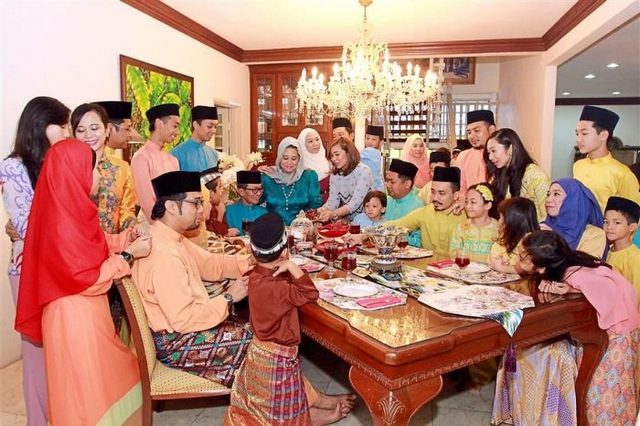M'sians Can Only Invite Relatives For Hari Raya On The 1st Day & Must Wear Masks At Home
Hari Raya celebrations this year has been cut short from a month to one day only.
Defence Minister Datuk Seri Ismail Sabri Yaakob said Malaysians can only celebrate upcoming festivities with guests for only one day
In a press conference today, 13 May, Ismail said all upcoming celebrations will be limited to one day only as Malaysians are not allowed to welcome visitors from the second day of the festival onwards.
The restriction applies not just to Hari Raya Aidilfitri on 24 May, but also Pesta Kaamatan and Hari Gawai, which falls on 30 May and 1 June respectively. All three celebrations last a month long.
"I know that we celebrate Aidilfitri for a month but this year, there can be no visits on the second day and so on," said Ismail, adding that open houses are prohibited.
"This was decided during the National Security Council special meeting. The visits are limited to close family members of not more than 20 people. This will be part of the standard operating procedure (SOPs) for Hari Raya, Pesta Kaamatan, and Hari Gawai celebrations."
Although it was previously gazetted each house can only receive 20 guests during the celebrations, Ismail said the ruling is dependent on the size of the house
"If a flat unit is 600sqft (55.74m²), 20 people would be too crowded. Use your discretion. Maybe only allow a few people at one time," New Straits Times quoted the Defence Minister as saying.
Instead, Ismail said Malaysians can split family members into groups and welcome them at different hours so that social distancing measures can be met.
He added that everyone in the house should try their best to always wash hands regularly, wear face masks, and practise social distancing on the day of the celebration.
Family members are advised not to share food on one plate as well.
"I know adik-beradik (siblings) always share food with one another, but do not do this this Hari Raya," said the minister.
Ismail reminded Malaysians that all these precautionary steps are taken to protect family members from COVID-19, especially the vulnerable groups – such as elderly and children.
